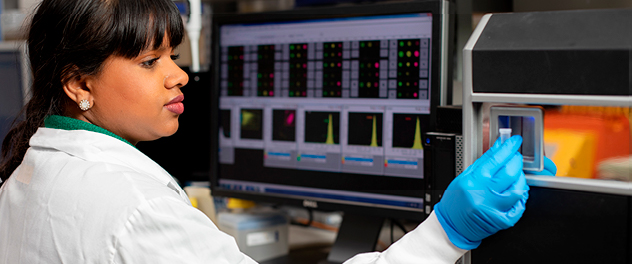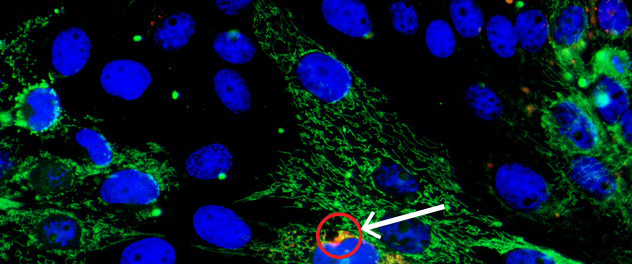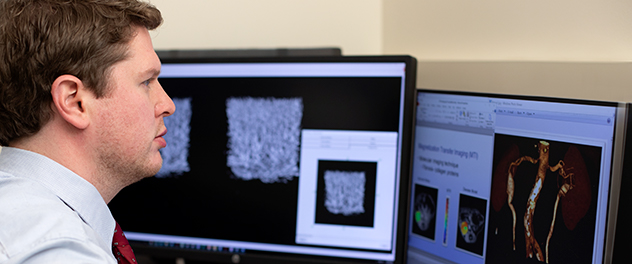-

Exploring novel disease mechanisms
Our lab uses cutting-edge assays to evaluate the pathophysiology of kidney disease.
-

Making a commitment to teamwork
We use sophisticated research tools and collaborate with other teams to advance science and improve patient care.
-

Developing innovative therapeutics
Our work explores how progenitor cells (labeled with a red dye) delivered to the kidney (cells stained in green) engraft in the renal tissue (shown at the bottom as co-localized yellow/orange stain).
-

Applying cutting-edge diagnostics
Our team applies novel imaging and other technologies to detect and monitor renal and cardiac structure and function.
Overview
The Renovascular Disease Laboratory of Lilach O. Lerman, M.D., Ph.D., focuses on the development and application of techniques to study renal and cardiovascular physiology and pathophysiology in animal models and in humans.
Areas of interest
Specific areas of research interest in our lab include:
- Pathophysiology of renovascular disease, hypertension and cardiac adaptation
- Cardiorenal interactions and the kidney and myocardial microcirculation
- Development and application of cell-based therapy for renal microvascular repair
- The effects of cardiovascular risk factors (such as early atherosclerosis, metabolic syndrome and obesity) on myocardial microvascular function, remodeling and adaptation to upstream coronary artery stenosis
- Effects of ischemia on renal repair
- Cellular senescence
- Potential benefits of chronic supplementation with novel drugs (such as anti-inflammatories and antioxidants) on the ischemic kidney and heart
- Development, interpretation and implementation of physiological imaging and image analysis techniques using multidetector computerized tomography (MDCT) and magnetic resonance imaging (MRI)
Our lab is involved in short-term and long-term studies with research tools that include wet-lab methods and sophisticated high-resolution CT, MRI, computer-based modeling and image analysis.
Disease mechanisms are often initially investigated in vivo using imaging and subsequently correlated with tissue alterations determined with molecular biology and cell culture techniques.
Our lab is exploring potential therapeutic targets and interventions that include regenerative medicine, revascularization and novel drugs.
Affiliations
Our lab has several affiliations at Mayo Clinic to help leverage research expertise:
About Dr. Lerman
Dr. Lerman, the principal investigator and director of the Renovascular Disease Lab, is a professor of medicine and a professor of physiology at Mayo Clinic College of Medicine and Science in Rochester, Minnesota. Dr. Lerman leads a dedicated team whose research goal is to help advance knowledge about the vulnerability of the heart and kidney as target organs and to ultimately develop and improve existing strategies to prevent and manage the spectrum of cardiorenal disease.